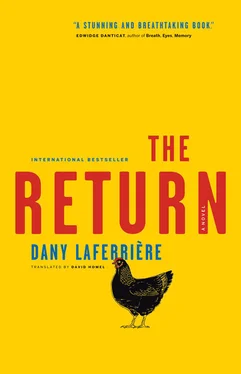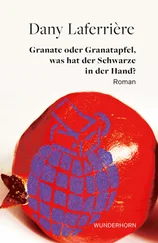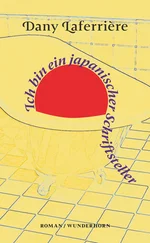Night falls so suddenly in the tropics.
Night black as ink.
Surprised by the darkness all around me
I walk behind the man slowly
reciting Apollinaire.
The smell of ilang-ilang
uses the darkness
to spread over
this poor district.
We slip silently between
two rows of lamps.
The melodious voices
of the women whose silhouettes
are sketched upon the market walls.
Their sung stories were my childhood lullaby
on summer evenings.
The indolent gait
of a cow
on her evening stroll.
The night becomes
a Chagall painting.
Those nubile young girls from the poor parts of town
wearing flimsy sandals slip like geishas
over the asphalt still warm from the sun
on their way to the movie house near the market.
Soon their lovers will meet them.
Young tattooed bandits they kiss
all along their way.
Before I left, that sort of thing didn’t exist, working-class girls who kissed in public. The only films were the ones the government bothered to screen ahead of time. The authorities established a morals brigade that spread out through the parks looking for unmarried lovers. They were married on the spot. The inspectors demanded, when the captive was worth it, to try out the goods first. The government figured that the more virtuous the population, the less likely it would rebel.
Raucous voices.
Near the nightclub.
On an out-of-the-way street.
Three pickup trucks crammed full
of peasants in Sunday clothes
come to town for a wedding.
The fragile napes
of the young women
contrast with
their calloused hands.
Our hands always reveal
our class origins.
The laughter of these one-night beauties
in the perfumed night
lets the young tiger on the prowl
locate them easily.
Then choose one,
bring her back to his lair
and devour her at his leisure.
A half-naked woman
preparing for the evening
at the end of a long corridor.
Car headlights
sweep across her glowing breasts.
To protect them from the eyes of predators
she quickly covers them with her hands,
revealing her swelling sex.
His father would spend his evenings at home. He died, he believes, never having known the night. We climb slowly toward the square. I watch him now that there’s light to see. He brushes close to people, takes in smells, savors the moment as I have rarely seen someone do. Worried that his precious knowledge of the night will one day disappear along with him, I ask why he doesn’t record his nocturnal adventures in a collection of poems or a personal journal. With a weary wave of his hand he lets me know he has no desire to share such emotions.
A pack of dogs ready to fight for a bone that a passerby just threw them. They break into two groups. The bone between them. Suddenly each goes for the throat of the other with no care for the bone. I turn to make a comment about their behavior, which doesn’t seem much different from humans but he is gone. Faded into the night that has suddenly grown opaque. I go back to the hotel and hope for sleep.
A swarm of little yellow-and-black motorbikes
like bees in search of pollen
buzzing around Saint-Pierre Square.
So it really is the end of Papa Doc’s
sharks in dark glasses.
New barbarians are in town.
From the hotel balcony, I look onto the square,
the marketplace, the bookstore
and in the distance the dusty road that leads down
toward my mother’s house.
Besides the excursion with my friend to his farm
I have not left this secure perimeter.
What is frightening me? Not the Tonton Macoutes who have melted into the population since Baby Doc’s departure, afraid of being discovered by someone they once tortured. Not the young guys on motorbikes who descend like locusts on this neighborhood of hotels and art galleries frequented by the few foreigners who risk visiting the country. I don’t stray far from this golden circle; I don’t want to feel like a foreigner in my own city. I keep putting off that moment of confrontation.
When I was a teenager, Pétionville was the rich suburb we visited on Sunday afternoons. In Saint-Pierre Square we hoped to spot upper-class girls out for a stroll. Things have changed since then. The rich have sought refuge on the mountain. To find out what life is really like, I should go down to Port-au-Prince where a quarter of Haiti’s population is squirming like fish out of water. For four decades the landless peasants, jobless people and wretched of this nation have been converging on the city.
I think of my mother who
has never left her neighborhood.
I think of those six million Haitians
who live without the hope of leaving one day,
if only to catch a breath
of cool air on a winter’s day.
I also think of those who could have done it
and haven’t.
Then I feel badly looking out on my city
from a hotel balcony.
Near Sainte-Anne Square I meet an old friend I haven’t seen since I was a teenager. At the time he lived in this workers’ neighborhood where he still lives. What amazes me most since I’ve been back is how almost no one has left their district. They have gotten poorer but keep fighting the wind that wants to blow them into more miserable quarters.
I remember the neat square with the flowering bushes surrounding a tall statue of Toussaint Louverture on horseback. Right across from the school of the same name. Now the bushes are black with mud. People’s faces gray and dusty. Houses with filthy entrances. I don’t understand how people can get used to such calamity.
I promised myself not to look at the city
with yesterday’s eyes.
Images from the past constantly try
to superimpose themselves on the present.
I am navigating through two worlds.
Sometimes we used to follow the train to filch
bits of sugar cane and chew on them
in the shadow of the King Salomon Star.
That crummy hotel became a bordello at night
while during the day it served as the headquarters
for all sorts of wildlife from the countryside
who’d come to the capital to do their dirty deals.
The real traveling salesmen stayed
in a modest hotel near Martissant.
We would lie down on the rails and jump out of the way just before the train came. We’d bet on who would get off the track last. My friend won every time. One day I asked him what his secret was. I close my eyes, he told me, and imagine I’m making love to Juliette. Juliette drove us all crazy back then. Of course he’d want her to be his. I wouldn’t have gotten off the track in time. I meet him again: he is a prisoner of his wheelchair. He can’t move his legs. First I thought that desire had won out over fear. Once he told me that after his friends left, he would go back and play this Russian roulette all by himself. Can you play that sort of game alone? Who’s the winner then? That was his way of having an orgasm. The closer the train came, the clearer Juliette’s face would become.
We lived in an electric atmosphere. It was dangerous just to stick our noses outside when the sharks in dark glasses paraded past in their luxury cars with young Dominican prostitutes smoking long menthol cigarettes. Often a machine gun pretended to sleep on the backseat. They spent whole nights gambling at the casino. We had to stay out of their way when they went home at dawn to sleep, because they didn’t think twice about firing at anything that moved — just to play another game. Their primary job was the Chief’s security. They’d invent some political plot just to throw their weight around in a recalcitrant neighborhood.
Читать дальше












